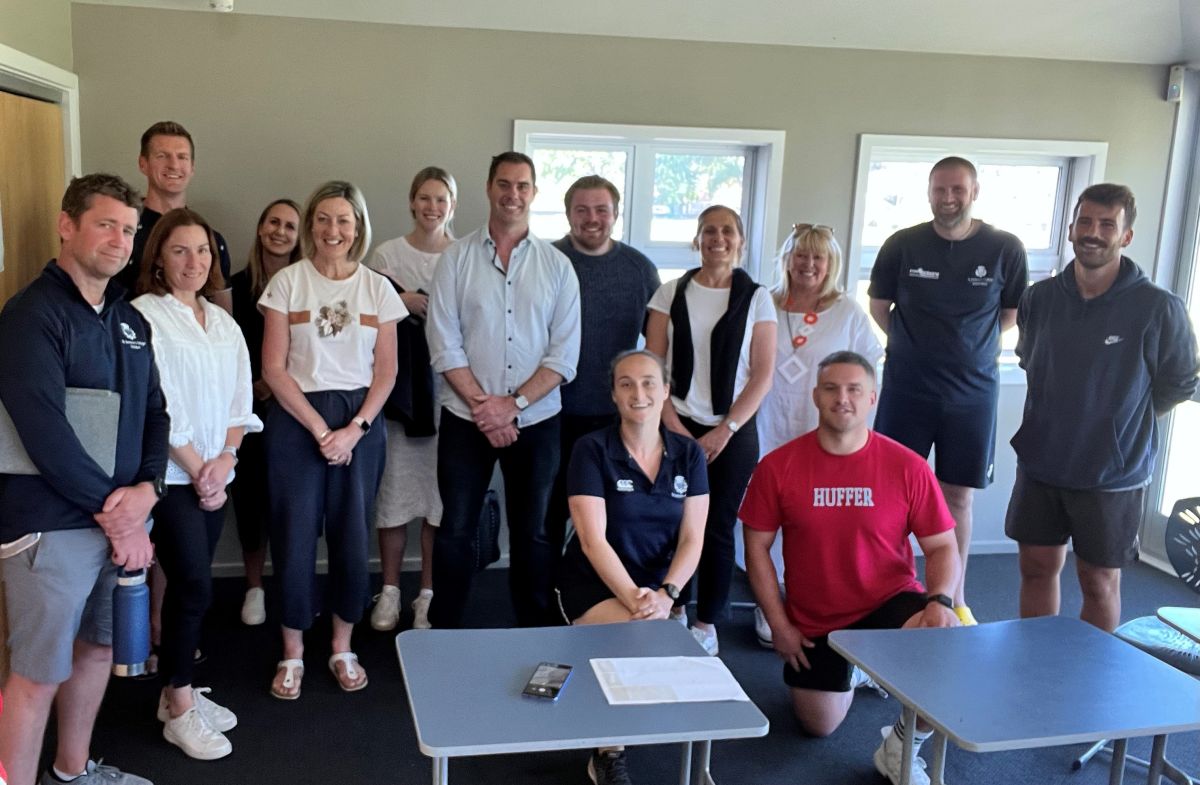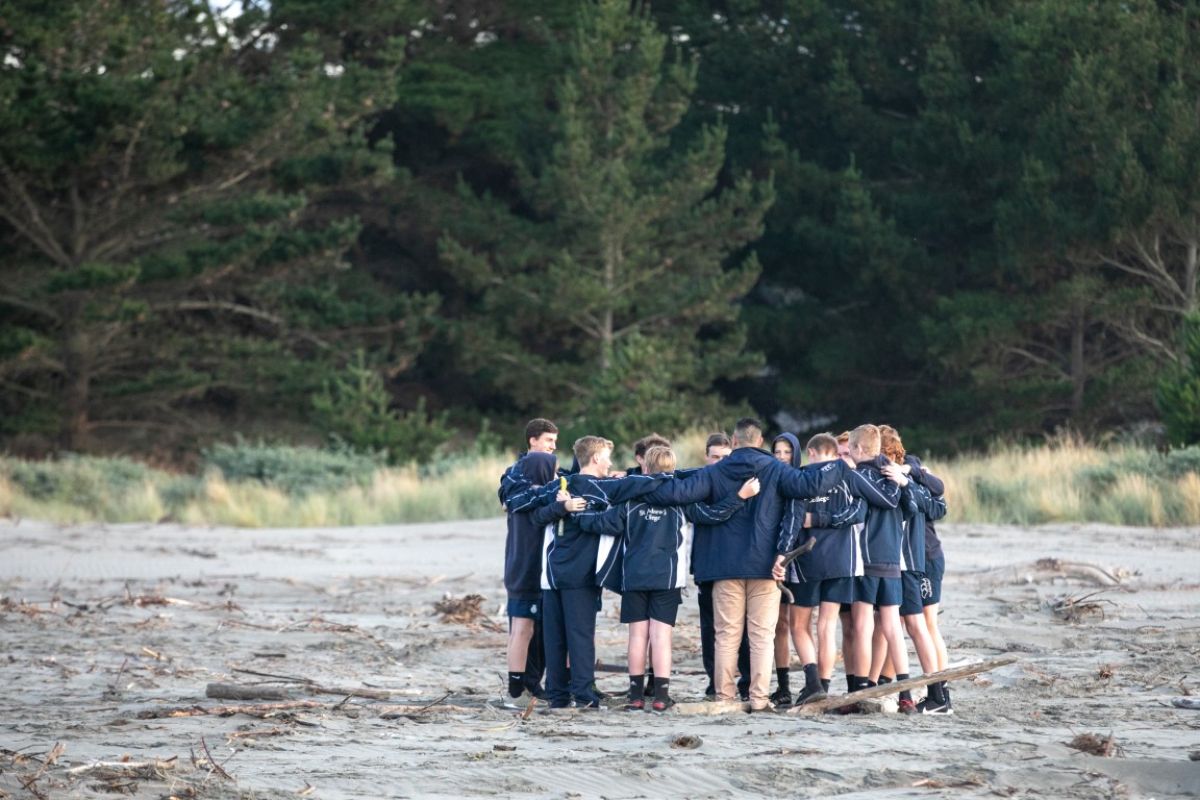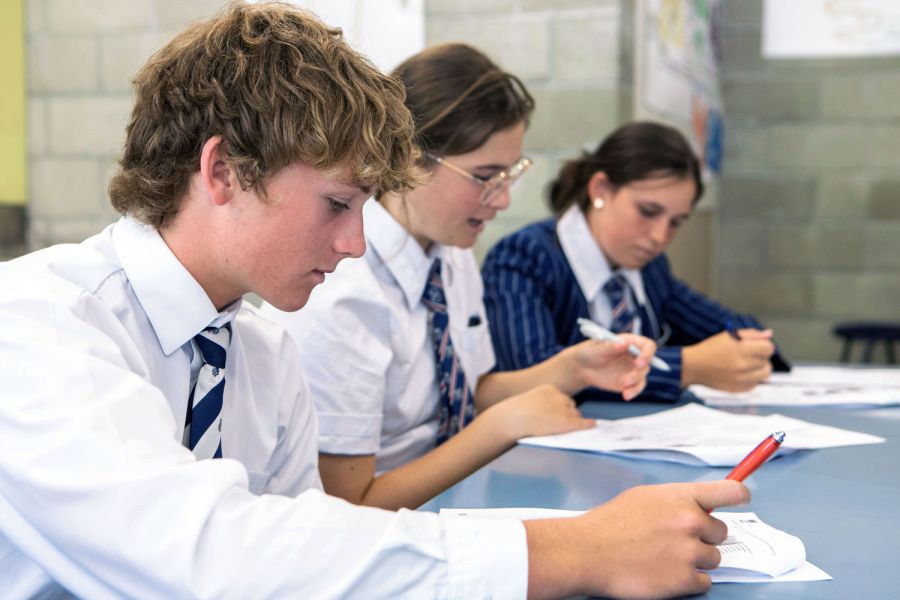On Psychological Resilience
2 December 2022
Written by Head of Well-being, Kerry Larby
Providing our teachers with professional learning is a key pillar of our whole school well-being goal. In 2022 our focus was to help our staff deepen their understanding of resilience.
This month, 20 teachers (some in photo below) spent two days learning about the psychological processes that underpin resilience. The training was effectively delivered by Director of Performance Psychology, Jason Yuill Proctor, and psychology graduate, James Orritt, from Performance ACT. Jason’s wisdom comes from a career dedicated to supporting Olympic athletes to flourish and achieve their performance goals. Throughout the training, Jason and James referred to psychological theories such as Cognitive Behavioural Therapy, Mindfulness training and Acceptance and Commitment Therapy to provide teachers with an understanding of how the brain works. They also included many practical activities and reflection tasks that set the scene for how teachers could take theory to the classroom.

I thought I would share with you some key points I brainstormed during the training. We will work to embed these ideas in our well-being programmes over the following year:
the human brain is not wired to for happiness. Instead, it is built for safety, survival, and connection. To do this, our minds are constantly thinking, predicting, and producing ‘noise’ to avoid danger and ensure belonging.
...evolution has shaped our minds so that we are almost inevitably destined to suffer psychologically: to compare, evaluate and criticise ourselves; to focus on what we’re lacking; to be dissatisfied with what we have; and to imagine all sorts of frightening scenarios, most of which will never happen. No wonder humans find it hard to be happy!
Russ Harris: The Happiness Trap
the content of the noise in our brain is directly impacted by the quality of our sleep, nutrition, exercise and through our connection with others. We are far more likely to be triggered if our well-being is compromised;
it is important to develop awareness of our thoughts as they create our perception of self and our perception of the world. It’s all about self-awareness. Freedom is realising we are not our thoughts;

acceptance is an important psychological process impacting our well-being. Rather than avoiding unpleasant thoughts and emotions, we should acknowledge and embrace these as a normal part of life and the human experience. All our emotions serve a purpose;
trying to stay in the present is another important psychological process that moves us away from judging, worrying and critiquing. Presence can be developed through the practice of mindfulness. Teachers were exposed to a variety of mindfulness techniques that they can use in their classrooms to help students bring their full attention to the present moment;
moving away from self-judgement and cultivating self-compassion is key. It’s about being kind to ourselves, appreciating our humanness, common humanity and being present. Students can do this by considering the difference between having an ‘inner critic’ to an internal ‘compassionate coach’.

Life asks us important questions. One of the most important questions it asks us is: What are you going to do with difficult thoughts and emotions?
American Psychologist, Steven Hayes
Hayes believes the answer to this question says a lot about the trajectory of your life. He believes the key to a flourishing life is having psychological flexibility. Psychological flexibility describes the ability to stay in contact with the present moment regardless of unpleasant thoughts, feelings, and bodily sensations, while choosing actions that move you towards your values, goals and what’s important;

the ability to focus is a vital skill for well-being and resilience. Resilient people live with intention and know what matters most and therefor where to take action. They commit to action despite experiencing uncomfortable thoughts and emotions. And it is through our actions that we create a rich, full and meaningful life. Our values, character strengths and goals provide us insight as to where we should focus and what action we should take. Providing reflection time for students to consider their personal values, to learn about their character strengths and to set goals using an evidence-based framework such as WOOP is an important focus for our teachers.
Teachers thoroughly enjoyed this training and can see many ways they can embed the learning in their lessons. They identified next steps including integrating mindfulness and providing more opportunities for journaling and reflection around thoughts, emotions and values.
I left this session with a lot to ponder about my own life. Do you talk about your thoughts and emotions at home? What do you do when difficult thoughts and emotions arise? What are you choosing to focus on? What values guide your actions?
Related Posts


